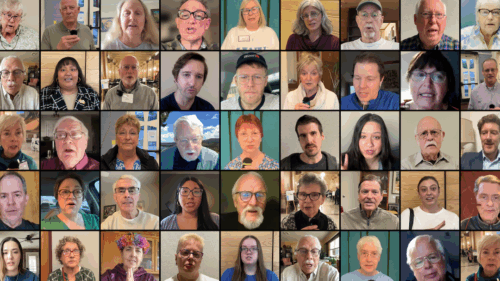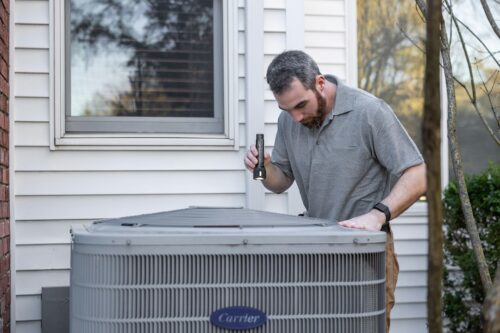Kansans speak up for clean energy


As Shift Zero and its allies in Washington State fought and won policy and funding progress for building electrification in recent years, Resource Media was right there with them — guiding on messaging, content creation, and shaping news coverage. Amid the wonky world of jargon, codes, and technology surrounding the heat pump solution to climate, health, cooling, and efficiency, we kept laser-focused on one essential strategy: making sure officials were moved by the personal stories of the people most affected.
Sometimes this meant getting to know community leaders like Ivan Montes with Centro de la Raza, and promoting his personal story through a South Seattle Emerald op-ed — the story of why “community navigator” roles are so important for turning heat pump funding into heat pump installations. But in an era where many prefer to get their information and education through online videos, that’s where we really made the storytelling shine.
We know that heat pumps deliver: they create and support jobs, make homes healthier and more comfortable (especially through Washington’s increasingly hot summers), and lower monthly bills through superb energy efficiency.
To bring these themes to life, we interviewed HVAC workers, health experts, and families. Their stories showed the transition to all-electric homes as relatable, beneficial, and underway. To catch and keep more eyes on crowded social feeds, we turned the longer video into three issue-focused shorts on jobs, health, and environmental justice.
“I think everyone deserves to have a good paying job. I made the switch to get into HVAC for the security reason - just to have a good-paying job that would last.”
With a little paid digital distribution, we made sure key decision-makers and other grasstops audiences in Washington saw these personal stories ahead of pivotal policy decisions — and netted hundreds of thousands of video views. But the impact went beyond our own state lines. As other building electrification advocates and allies saw and promoted the content, the suite of videos garnered more than 935,000 YouTube views.
As state funding for heat pump access in Washington flowed into programs installing heat pumps in lower-income households, we partnered with two local programs to produce videos featuring program participants’ personal — and often touching — stories: this video with Energize King County and this one with Seattle’s Clean Heat Program.
Today, these local programs are using the videos to help more Washingtonians hear directly from their neighbors about the benefits and incentives available to help them get heat pumps.
“We got a rebate through the Clean Heat program, and who doesn’t like rebates? … Our utility bills have gone down and that’s very important because we’re on a fixed income.”
To widen our reach, we experimented with another video storytelling style — a lighthearted summer heat-themed spot playing off a TikTok trend, instead of the documentary style approach. This resonated well with its intended younger homeowner audience of women aged 25-44 with 900 post engagements and more than 500 click-throughs for just a couple thousand dollars on Instagram. We found a very cost-effective pathway to getting hundreds of thousands of women to spend 30 seconds learning about heat pumps for cooling during the summer heat—and tens of thousands to head to The Switch is On, a consumer-focused site to investigate further.
Despite funding setbacks at the federal level, momentum for heat pumps continues in states and local communities across the country. We know personal storytelling will be critical in each of them. The more we can create and share compelling personal stories, the better we can move the market and build the public sector support needed to make sure everyone has access and benefits.
